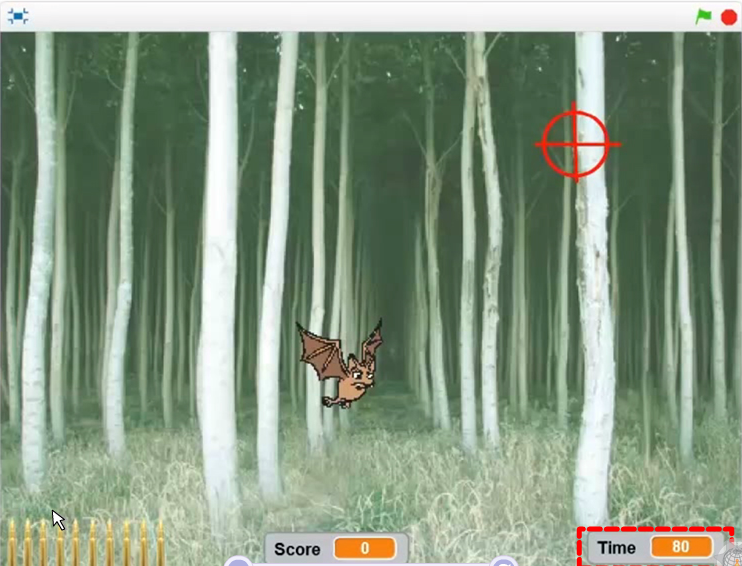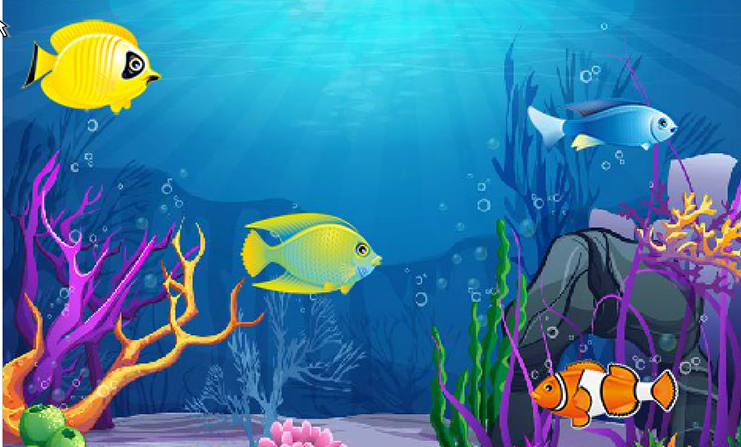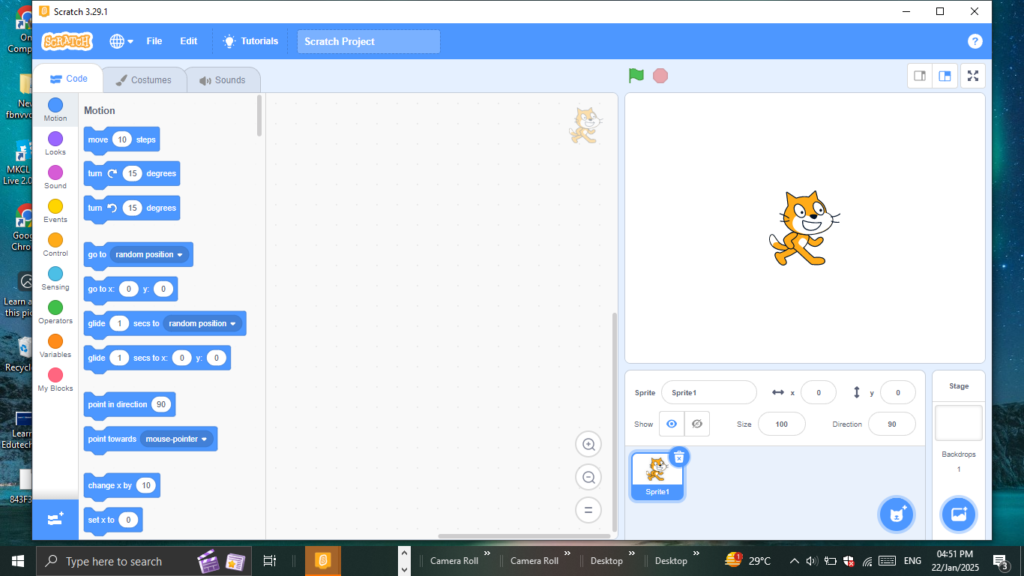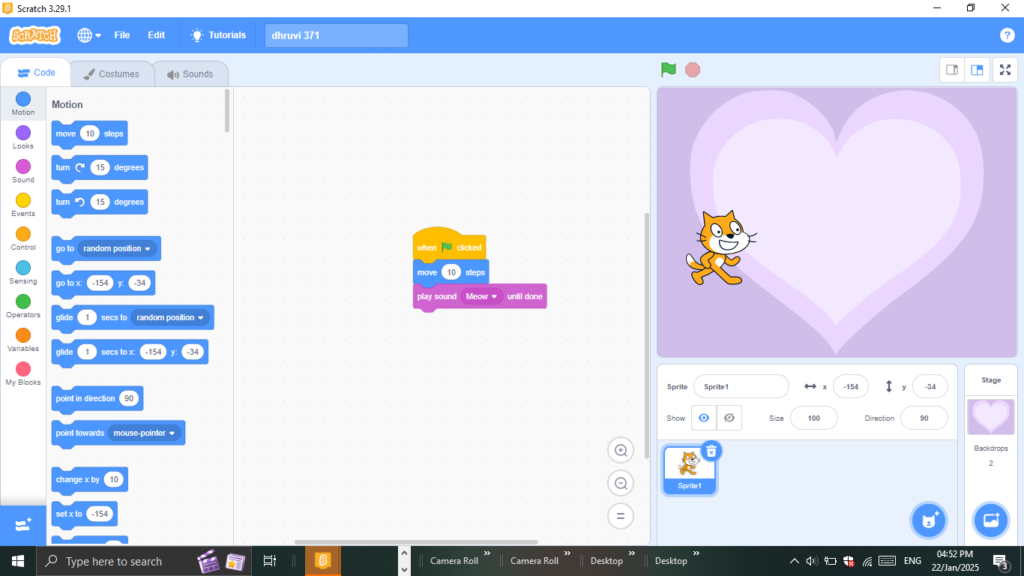SCRATCH

Scratch is free visual programming language. You will learn how to create your own interactive stories, amazing games, animated images and songs in just minutes with a simple ‘drag and drop’ interface. No programming knowledge needed. You can also share your creations with others in the online community.
Scratch helps you to think creatively, reason systematically, and work collaboratively. This course is suitable for all ages. It doesn’t matter how old you are… So Get Ready for Exciting Journey in the World of SCRATCH…!!!
Who Should Join
- Students (School and College): Individuals seeking to develop foundational programming skills in a user-friendly environment.
- Educators and Teachers: Professionals aiming to incorporate visual programming into their teaching methodologies to enhance student engagement.
- Parents and Guardians: Those interested in guiding children through the basics of programming and fostering creative thinking.
- Aspiring Game Developers: Individuals looking to understand the fundamentals of game design and development.
- Hobbyists and Enthusiasts: Anyone keen on exploring programming concepts without prior experience.
- Community Center Facilitators: Leaders aiming to introduce programming to community members in an accessible manner.
- Individuals Preparing for Advanced Programming: Learners planning to transition to more complex programming languages like Python or Java.




What you’ll learn ?
Scratch’s networking infrastructure, coupled with its multilingual capabilities, enables youth to share their digital-arts creations with other youth across geographic, language, and cultural boundaries.
The skills learnt through Scratch can be applied to other basic programming languages like Python and Java.
Scratch flexibility allows teachers to create conceptual and visual lessons and science lab assignments. Within the social sciences, instructors can create quizzes, games and tutorials that stimulate the mind and interact with the learner.Show less
Certification
- MKCL provides certificate to the KLiC learner after his/her successful course completion.
Academic Approach
The academic approach of the courses focuses on the “work-centric” education i.e. begin with work (and not from a book!), derive knowledge from work and apply that knowledge to make the work more wholesome, useful and delightful. The ultimate objective is to empower the Learner to engage in socially useful and productive work. It aims at leading the learner to his/her rewarding career as an employee or entrepreneur as well as development of the community to which s/he belongs. Learning methodology:
- Step -1: Learners are given an overview of the course and its connection to life and work.
- Step -2: Learners are exposed to the specific tool(s) used in the course through the various real-life applications of the tool(s).
- Step -3: Learners are acquainted with the careers and the hierarchy of roles they can perform at workplaces after attaining increasing levels of mastery over the tool(s).
- Step -4: Learners are acquainted with the architecture of the tool or tool map so as to appreciate various parts of the tool, their functions, utility and inter-relations.
- Step -5: Learners are exposed to simple application development methodology by using the tool at the beginner’s level.
- Step -6: Learners perform the differential skills related to the use of the tool to improve the given ready-made industry-standard outputs.
- Step -7: Learners are engaged in appreciation of real-life case studies developed by the experts.
- Step -8: Learners are encouraged to proceed from appreciation to imitation of the experts.
- Step -9: After the imitation experience, they are required to improve the expert’s outputs so that they proceed from mere imitation to emulation.
- Step-10: Emulation is taken a level further from working with differential skills towards the visualization and creation of a complete output according to the requirements provided. (Long Assignments)
- Step-11: Understanding the requirements, communicating one’s own thoughts and presenting are important skills required in facing an interview for securing a work order/job. For instilling these skills, learners are presented with various subject-specific technical as well as HR-oriented questions and encouraged to answer them.
- Step-12: Finally, they develop the integral skills involving optimal methods and best practices to produce useful outputs right from scratch, publish them in their ePortfolio and thereby proceed from emulation to self-expression, from self-expression to self-confidence and from self-confidence to self-reliance and self-esteem!
